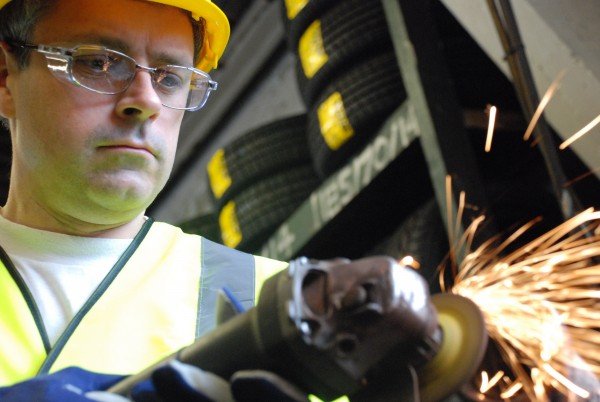New PPE regulations imminent – what you need to know
 By Jim Lythgow, director of strategic alliances at Specsavers Corporate Eyecare
By Jim Lythgow, director of strategic alliances at Specsavers Corporate Eyecare
It is more than 20 years since the Personal Protective Equipment (PPE) Directive (89/686/EEC) was first adopted by the European Council. This piece of legislation relates to occupational safety across Europe and was implemented into UK law as the Personal Protective Equipment (EC Directive) Regulations 1992, coming into effect in January 1993 and known as the Principal Regulations.
Currently, it is the PPE Regulations 2002, which implement the provisions of the PPE Directive (89/686/EEC) in UK law. For the purposes of this directive, PPE means any device or appliance designed for use in domestic, leisure and sports activities, or for professional use. To be worn or held by an individual for protection against one or more health and safety hazards in the execution of a specific activity. It lays down the conditions governing PPE placed on the market and the basic safety requirements which it must satisfy in order to ensure the health, safety and protection of the user. (These should not be confused with the Personal Protective Equipment (PPE) at Work Regulations 1992, which govern the employer on the suitability, provision, maintenance, instruction and use of PPE.)
Having changed very little since implementation, the PPE rules are now in need of updating, to reflect the new technologies that are now employed in bringing PPE to market. A draft version of a new regulation has, therefore, been debated and approved by the European Commission and Parliament.
For more on PPE, read our PPE Regulation and Buyer’s Guide
This is now at the stage of final agreement on the wording by the European Council. It will become official once printed in the OJ (the Official journal of the European Union) and the regulation will come into force 20 days later. Originally expected to be published in the OJ at the end of the summer 2015, the regulation is already delayed but experts are now suggesting it will appear in quarter one, 2016 – any time now. A transition period will then take place, with full enforcement around the end of 2018.
Existing PPE certificates, held by manufacturers, will expire when the regulation comes fully into force. Safety managers procuring PPE need, therefore, to be aware of the changes, to ensure that their providers will be able to meet the new certification standards. While the existing PPE directive focuses on manufacturers, the new regulation will be effective over the whole supply chain. Anyone involved in the supply and distribution chain will, therefore, have to take appropriate action to ensure the PPE meets the required standards.
It is worth noting that the current PPE legislation is a Directive. This is a legislative act setting out objectives for EU countries to achieve in their own way, by a certain date. The new PPE legislation will be reclassified as a PPE Regulation. This is a binding legislative act, which must be applied precisely across the EU by each member country. Once decided upon and announced by the European Commission the rules will, therefore, be set in stone.
More information can be found on the BSI whitepaper.
You can find out more information on PPE at our focused PPE section here.
 Jim Lythgow heads the Corporate function at Specsavers, managing a team of sales, marketing and customer services professionals who position optical care to the business community and their employees.
Jim Lythgow heads the Corporate function at Specsavers, managing a team of sales, marketing and customer services professionals who position optical care to the business community and their employees.
New PPE regulations imminent – what you need to know
By Jim Lythgow, director of strategic alliances at Specsavers Corporate Eyecare It is more than 20 years since the Personal
Roz Sanderson
SHP - Health and Safety News, Legislation, PPE, CPD and Resources Related Topics
Taking the risk out of PPE safety product procurement
PPE at work regulations updated
Listen Up: ‘Employers must provide the same level of hearing protection to all workers under amended PPE Regulations’



“Existing PPE certificates, held by manufacturers, will expire when the regulation comes fully into force”
Except they won’t.
Existing Certificates, with an expiry date, will be valid until their expiry, even after the Reg comes into force.
Existing Certificates, with NO expiry date will expire 7 years after the Reg comes into force.
Regards,
Chris Butcher
Certification Manager, BTTG.